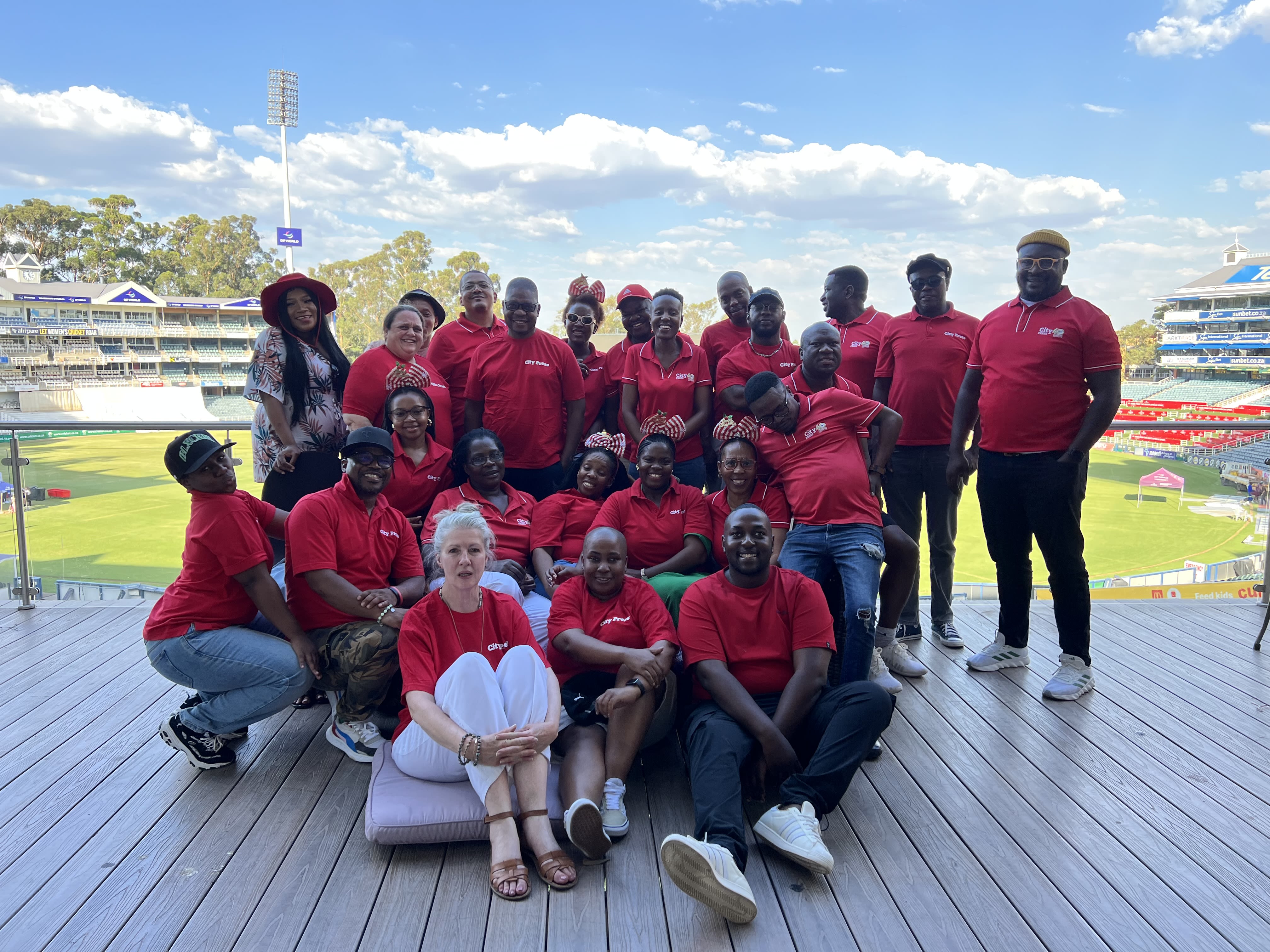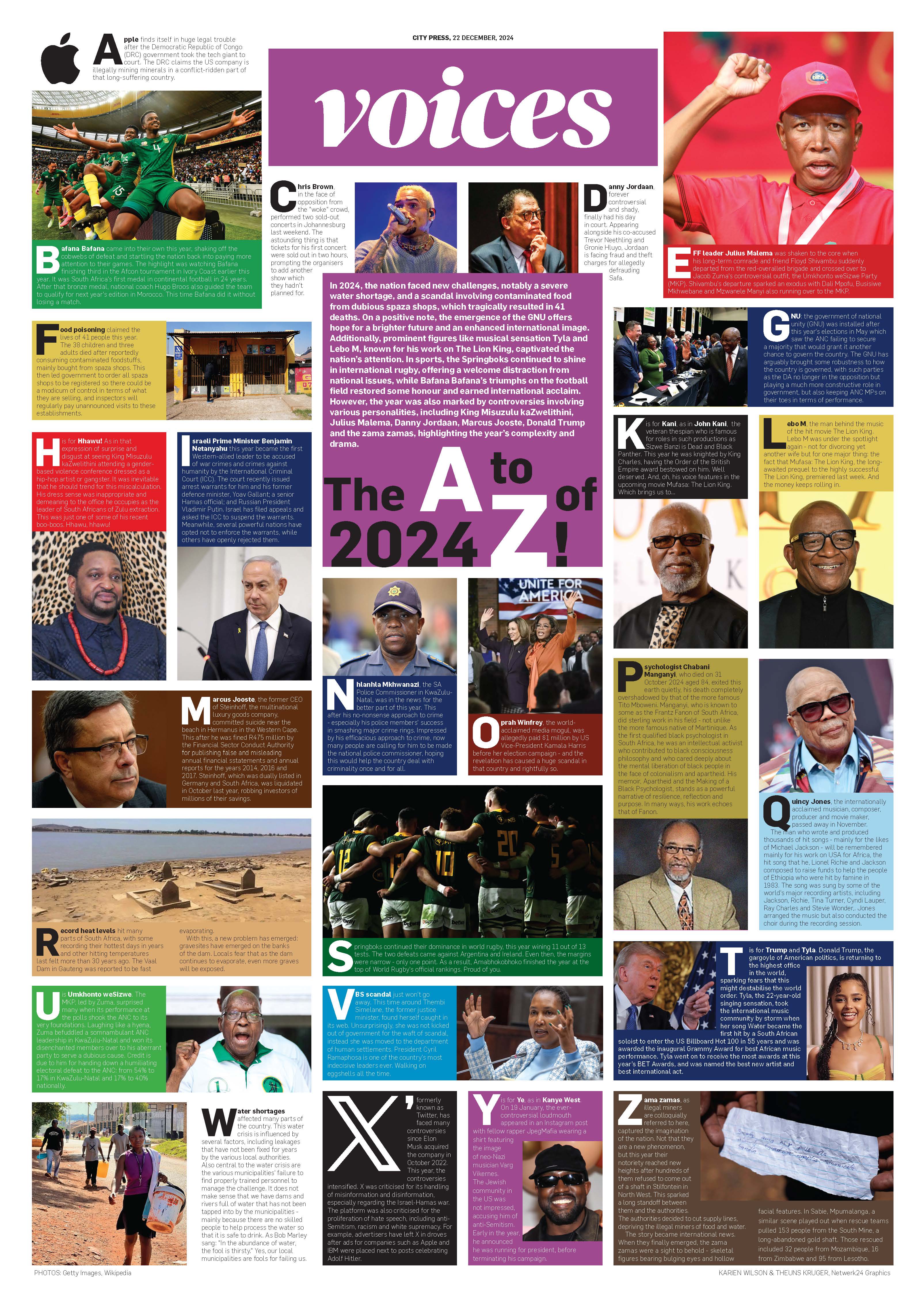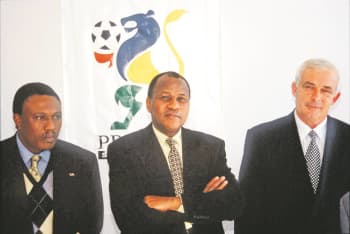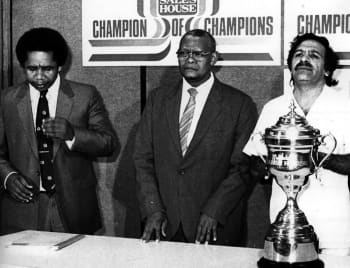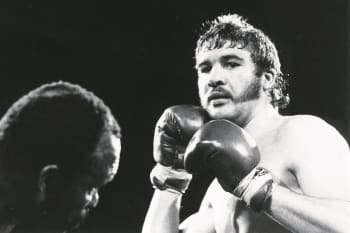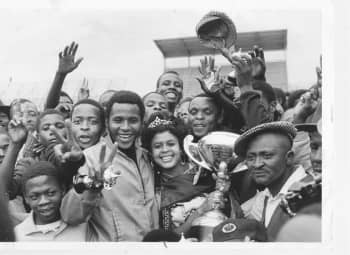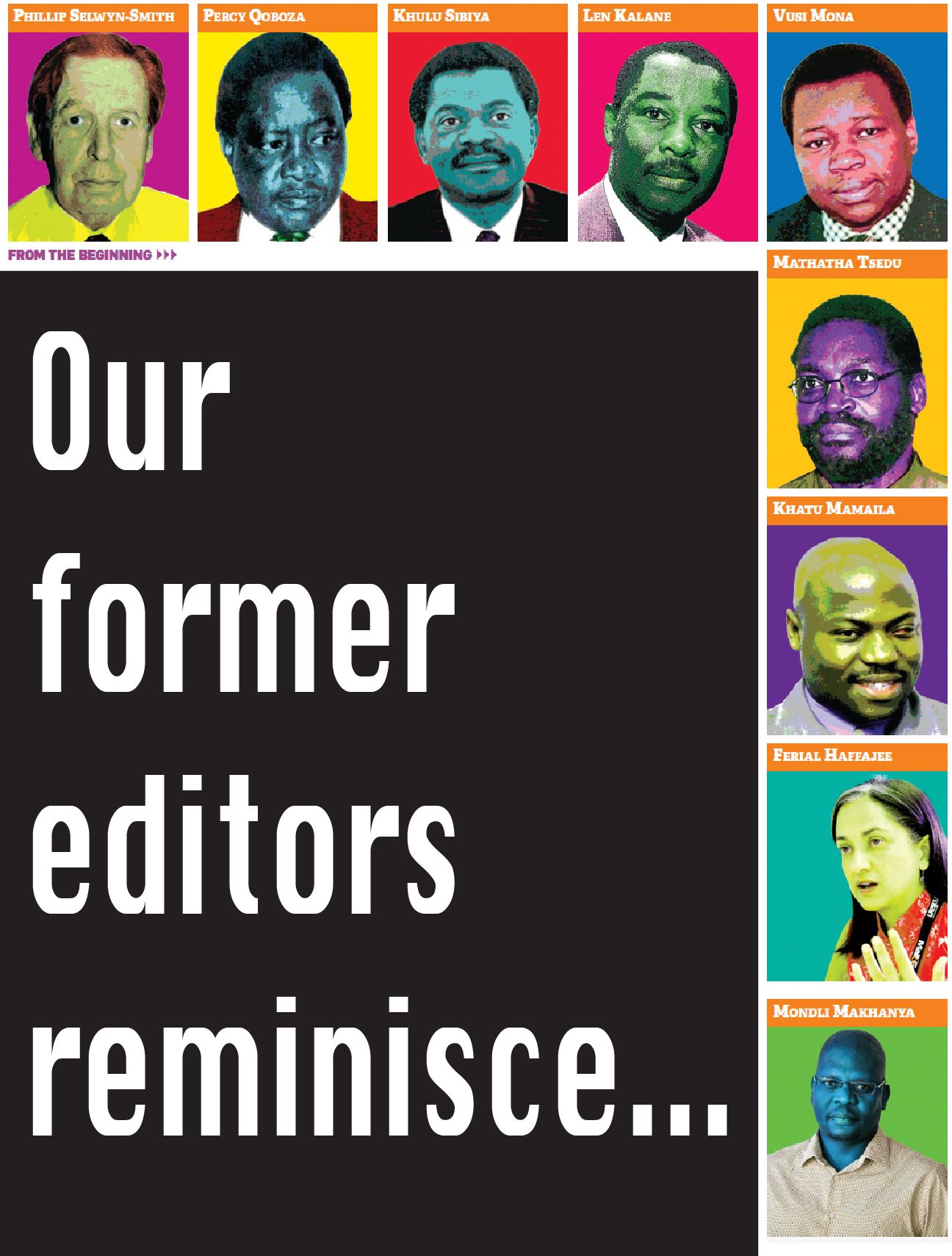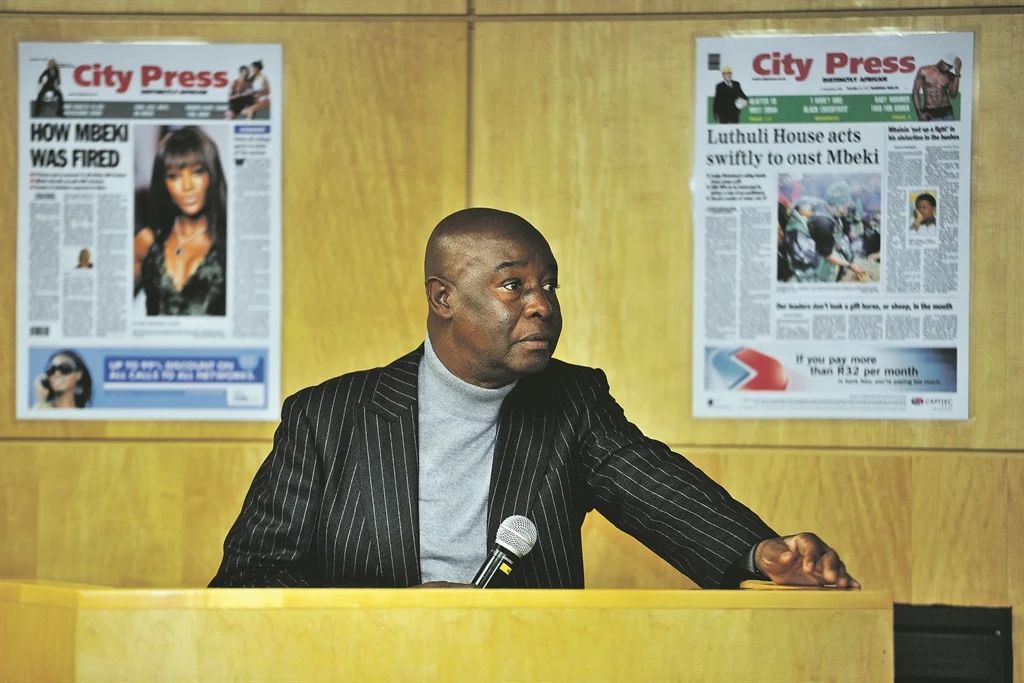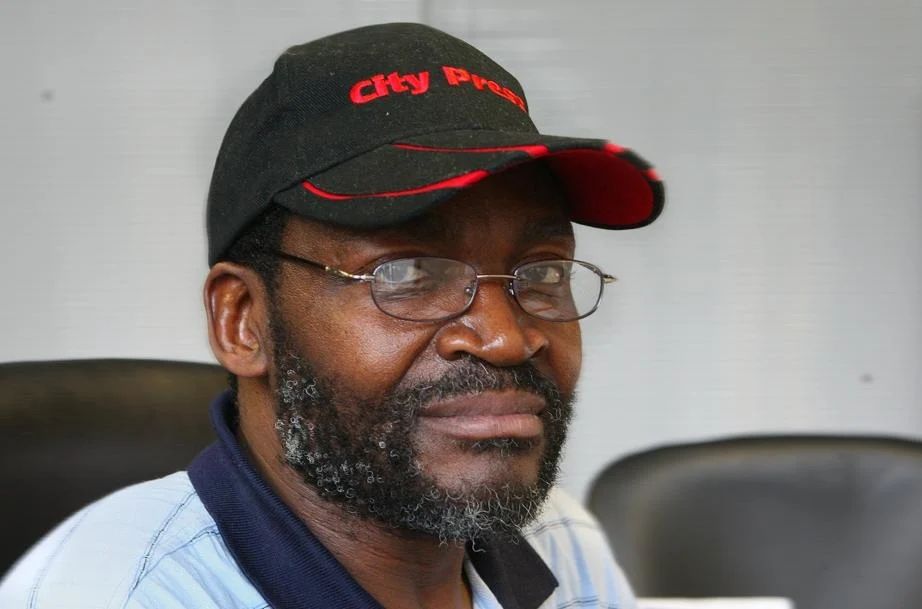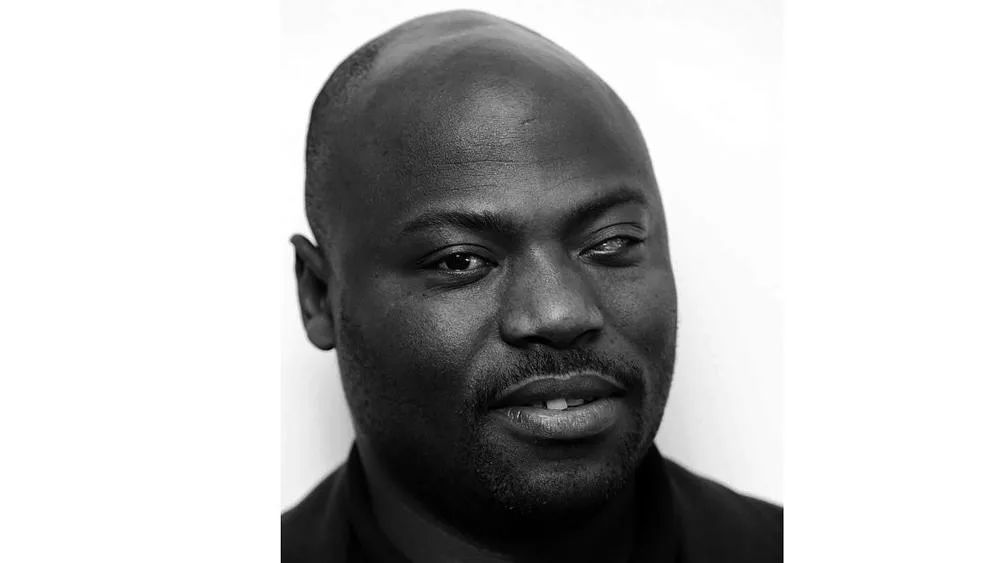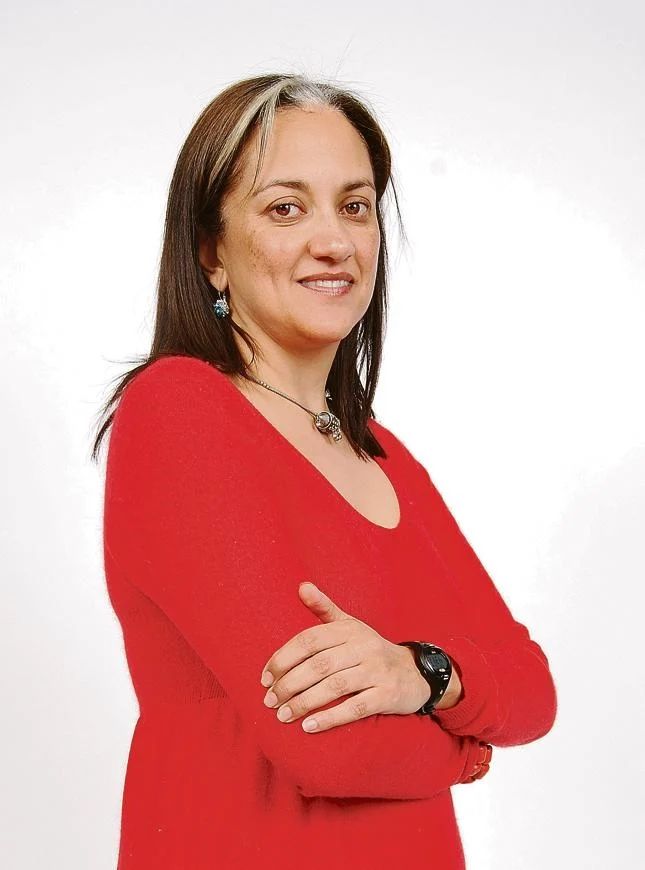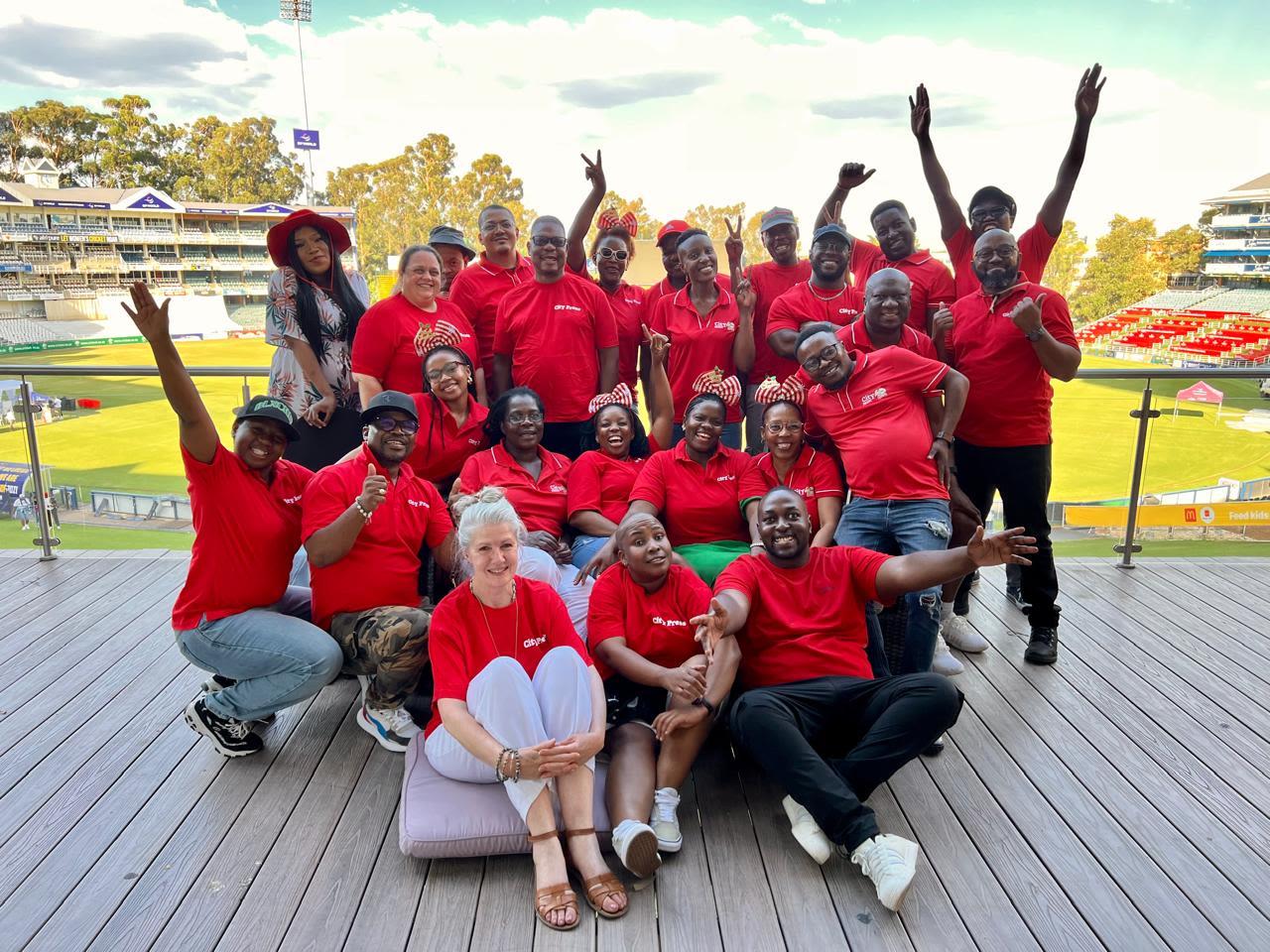An era ends...
A new one begins
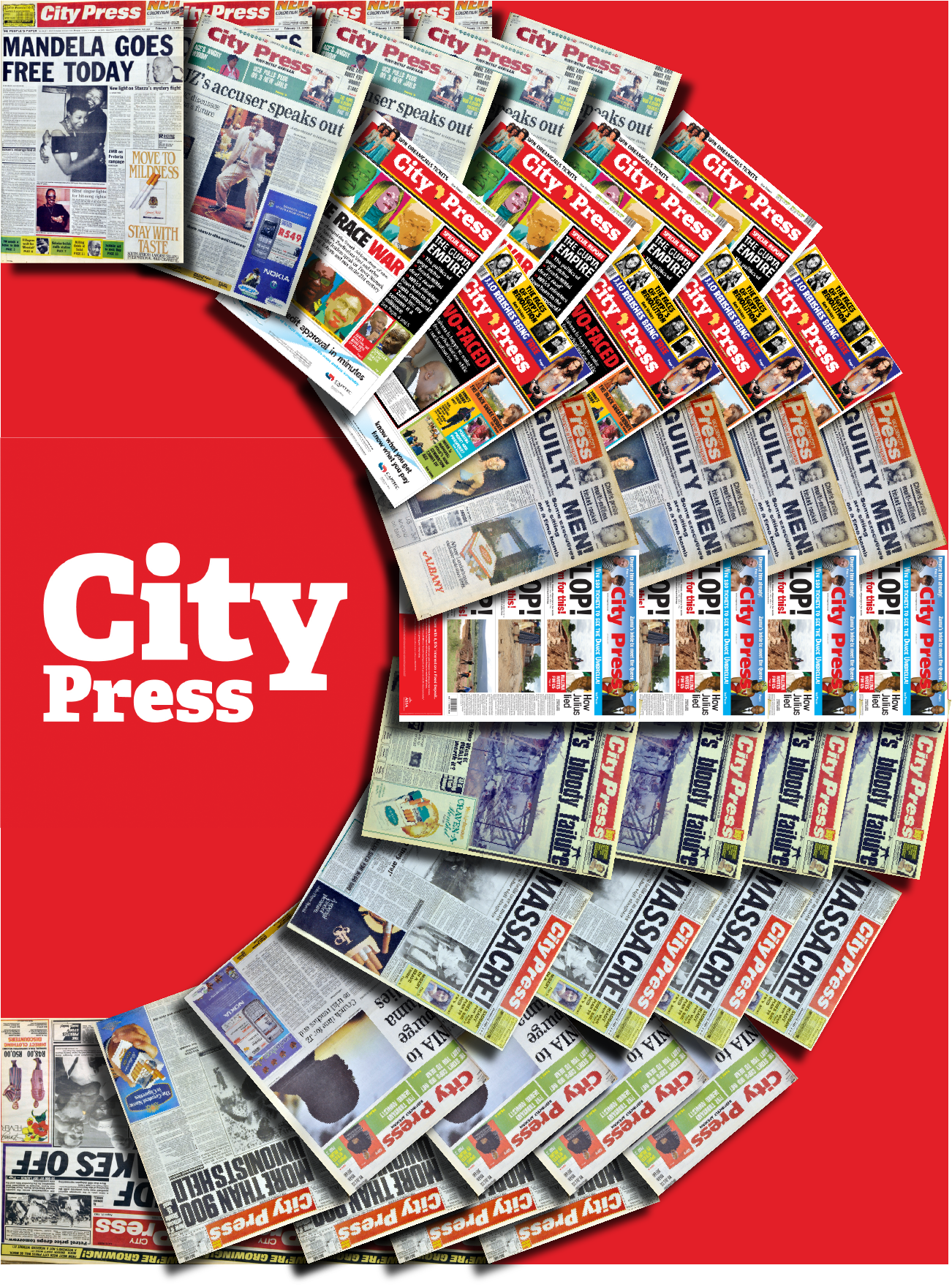
Much has changed in South Africa over the past 42 years, and City Press has been there for it all.
Join us for a trip down memory lane...
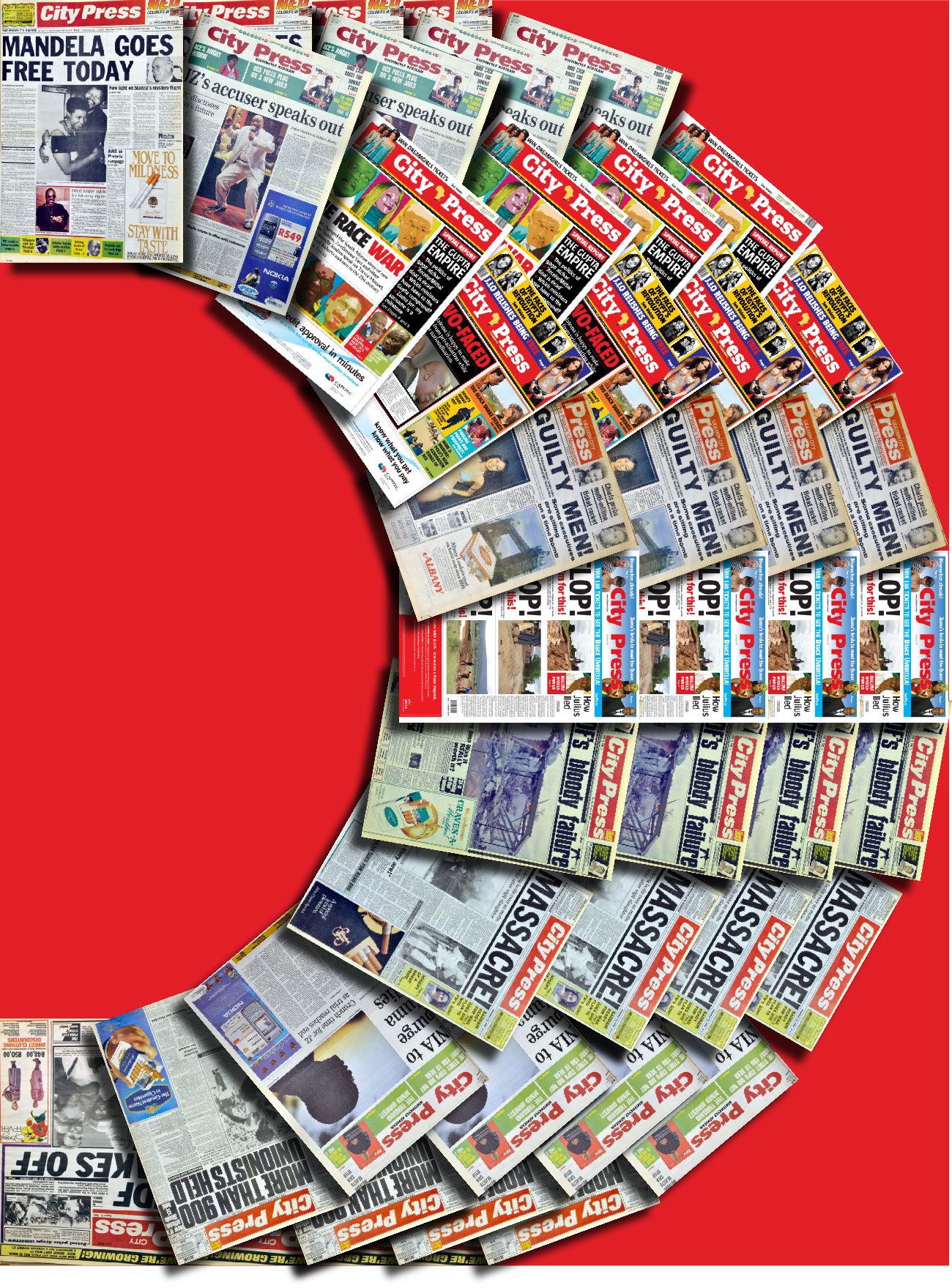
This isn't goodbye, it's a leap forward
Mondli Makhanya
Twenty years ago, Alan Rusbridger – then editor of The Guardian in the UK – delivered a seminal speech on the role of newspapers at the annual Hugo Young Lecture, named in honour of the British journalistic legend and long-term columnist for the publication. Titled What are newspapers for?, the lecture explored the challenges facing the industry at the time.
Circulations were declining at a rapid rate, driven by technological advances, the changing reading habits of news consumers, especially the younger ones, and eroding trust resulting from ethical scandals that had hit some of the most respected media outlets in the world. There was also the phenomenon of “news-grazing”, whereby readers were content to catch radio headlines, get snippets from the ubiquitous 24-hour news channels, scan the free Metro newspaper on the subway or rely on SMS text alerts, rather than read a cohesive, full-length report about an issue.
“The internet effect was finally felt in boardrooms as well as newsrooms, with readers and advertisers drifting – sometimes rushing – online. The future reading habits of the younger members of this audience are of deep interest to newspaper publishers,” said Rusbridger.
This crisis was hitting quality publications much harder than the titillating tabloids. While the quality broadsheets were losing money hand over fist, the tabloids and less serious broadsheets were still posting tidy profits. Another conundrum was that the trust levels for these titillating newspapers was at a paltry 7%, yet they were thriving.
“Think about the significance of that. Something approaching one in two adults in the UK reads a paper they don’t remotely trust,” quipped Rusbridger.
Newspaper houses were responding to this emerging crisis by shrinking newsrooms and relying on wire copy, while others were dishing out free newspapers in order to maintain or grow audiences and thus attract advertising. Some were opting to go tabloid with bold, punchy presentations, while preserving quality journalism. Still others opted for a compact format known as Berliner, which is slightly smaller than broadsheet. The more desperate went further, opting for these formats, but also succumbing to the lure of being less serious.
When Rusbridger delivered his speech, The Guardian was grappling with its own response. It eventually went the Berliner route, but did not in any way downgrade its quality journalistic offering. Uppermost in Rusbridger’s and his colleagues’ minds was responding to the conditions, while remaining true to the mission of newspapering.
He stated that, for all the centuries of the existence of this industry, “at its heart has been the civic value of news-telling”.
“As we [at The Guardian] considered our response, we found ourselves having some very fundamental debates about what, in a crowded media hypermarket, a newspaper was for? What task should it set itself? And how should it measure its success? For generations, there had been a quiet understanding about what newspapers were for.
“They were there primarily to tell a society about itself, to act as a pollinator of information. To be a conduit between subjects and rulers, citizens and legislators, legislators and citizens, citizens and citizens.
“The Enlightenment brought with it an understanding that decent, liberal democracies relied on having a sufficient number of adequately or reasonably informed citizens. The contrary was also true: that it would be difficult to maintain a liberal democracy – in all its subtlety and with all its finely-tuned balancing acts – if the people were ill-prepared, ill-informed or, worse still, misinformed.
"Of course, newspapers sought to entertain as well. And they were also there to challenge power – to hold it to account,” the renowned editor declared.That was in 2005, but it seems a century ago. As Rusbridger reported, at that time “the internet effect was finally felt in boardrooms, as well as newsrooms”.
In 2024, the internet – and all its progenies – ARE the world. Elections are contested there. Yes, there are still the traditional hustings, where fiery speeches are made, hands are shaken and babies kissed.
However, it is in the digital world that the persuasive arguments and the lies that make the difference are found. Wars are now fought as much in cyberspace as on physical battlefields. Music and other art forms are produced with the aid of advanced technologies and disseminated in nanotime, using platforms that were previously the stuff of sci-fi movies.
The media is no different. Since Acta Diurna (meaning “Daily Events”), believed to be the first newspaper, was carved into stone in ancient Rome in 59BC (when this lowly newspaperman was just a snotty toddler), the industry has undergone a million transformations. Back then, Acta Diurna contained political announcements, notices of important deaths, grain prices and – of course – Orlando Pirates’ latest victory against teams from neighbouring empires. Over the centuries and millenniums, newspapers evolved.
This is why City Press and its sister publications in Media24 – Rapport, Daily Sun and Beeld – are taking the big leap into becoming fully digital publications.
READ: Mondli Makhanya | SACP's silly blinkers blind them to the reality of the GNU
If you are reading this article in print, this will be the last time you will be feeling the paper, smelling this ink and paging through City Press as you lie on your back or lean over your table.
From January, you will not walk into a shop and see this beautiful publication beaming at you from the shelf, saying “take me home”. Instead, it will be with you all the time – on your desktop, laptop, cellphone, watch or whatever device technology is yet to throw at us.
This newspaper has been in the lives of South Africans since 1982, when John Bailey, the crazy legend of South African publishing, decided that the nation needed a reboot of the Gold City Post. It had been 11 years since the financially enforced closure of the racy Gold Post and five years since the demise of The World, at the hands of the apartheid regime, during the infamous Black Wednesday banning of progressive organisations and media.
When the new Golden City Press was born in 1982, it was almost a fusion of the two. It was hard-hitting and stridently political, but also highly entertaining. Former City Press editor in chief Len Kalane recalled in his book, The Chapter We Wrote, that the newspaper surged from a print run of a mere 4 000 for the launch edition to nearly 109 000 within a year. Ten years later, the readership had surpassed 200 000.
At its peak, the paper sold an average of 350 000 copies.
More than its sales, the City Press brand carried immense influence in all spheres of life, from politics to sport, the arts and business. This was due to the fine journalists who came through its doors in Doornfontein, Auckland Park, Ferndale and many bureaus in provincial cities.
Under legendary founding editor Percy Qoboza, City Press had a strong activist streak in terms of which its journalists saw themselves as part and parcel of the struggles being waged by communities countrywide.
This earned the newspaper great trust, but also earned some of its journalists long spells in apartheid prisons, held under detention without trial, as provided for by the then government and its security police.
Qoboza infused his anger at apartheid into the culture of all the newspapers he edited – and City Press was no exception. This stridency was one of the reasons The World was so much feared by the erstwhile National Party government, leading to its closure and Qoboza’s six months of detention without trial in 1977. He had declared some time before The World met its end that it was because of his own anger at the system that “the character of my newspaper has changed. We are an angry newspaper. For this reason, we have made some formidable enemies and my own personal life is not worth a cent.”
In 1981, in a column he wrote for the predominantly white audience of the Rand Daily Mail, he declared: “If you sometimes get mad at me because the sentiments I express keep you awake at night, then I am glad. I do not see why I should bear the brunt of insomnia worrying about what will happen tomorrow.”
That anger at wrongness permeated the tenure of the editors and journalists who followed Qoboza. Those who were there during the turbulent 1980s were angry at injustice and oppression; those who were there during the early years of democracy were angry at the culture of unaccountability that was creeping into the new order; and those who came after that were angry at the corruption that was becoming pervasive, and the stubborn inequality and poverty in the land.
Like Qoboza, we of this City Press generation are still angry about the lack of urgency in eradicating the worst excesses of the apartheid system.
READ: WATCH | City Press moves fully online: An era ends, another begins
Yet City Press was and is still very joyful too. On these pages, there was a celebration of arts and culture, sports and everyday life. From Brenda Fassie to John Kani to Lira andNomzamo Mbatha, City Press has highlighted the leaps and achievements of our cultural icons. City Press has been there to mark great moments of sporting triumph, such as Orlando Pirates’ 1983 Sales House Champ of Champs victory, Orlando Pirates’ 1995 conquest of the continent, Bafana Bafana’s 1996 African Cup of Nations success and the Springboks’ multiple exploits on the global stage. This newspaper has also been an invaluable educational tool and many highly successful South Africans attribute their status in life to the lessons learnt from these pages.
Over the past decade, City Press has been evolving from the newspaper that you bought at the shops or the vendor at the traffic lights, or that was thrown over your wall every Sunday morning. This was with the inevitable very much in mind. We knew that, at some point, technology would dictate that news would increasingly be consumed on gadgets and at great speed.
Technological advances also meant that the static word and picture presentation which used to be the staple of newspapers is today just one way of telling stories.
At present, we have many different innovative and engaging ways of storytelling. It is also no longer a one-way monologue, but rather an engagement between the news consumer and the publication. In addition, we have become a seven-day publication, able to deliver news on a daily basis, while giving you the definitive and authoritative read on Sunday.
On this day, the City Press that has been evolving is taking the final big leap into becoming a solely and fully digital publication. It is a sad moment for many of our readers, for whom holding this newspaper was a routine so deeply imbedded that it was in their blood. It is also a sad moment for us in the newsroom, who have grown up knowing a newspaper to be exactly that: paper with news in it. However, it is an overwhelmingly exciting moment too for us to be the midwives of the new age.
The City Press that you will be reading from January will still be the newspaper that shines light in dark spaces, holds power to account, educates society and entertains South Africa. Our stories, analyses, opinions, pictures and videos will carry even more weight and have greater and more immediate reach.
To quote Rusbridger, at the heart of what we do will always be “the civic value of news-telling”. We will continue to be the “pollinator of information ... a conduit between subjects and rulers, citizens and legislators, legislators and citizens, citizens and citizens”.
We commit to continue serving you the best meal every Sunday and keeping you engaged every day of the week.

Bring back art critics
John Kani misses the critiques
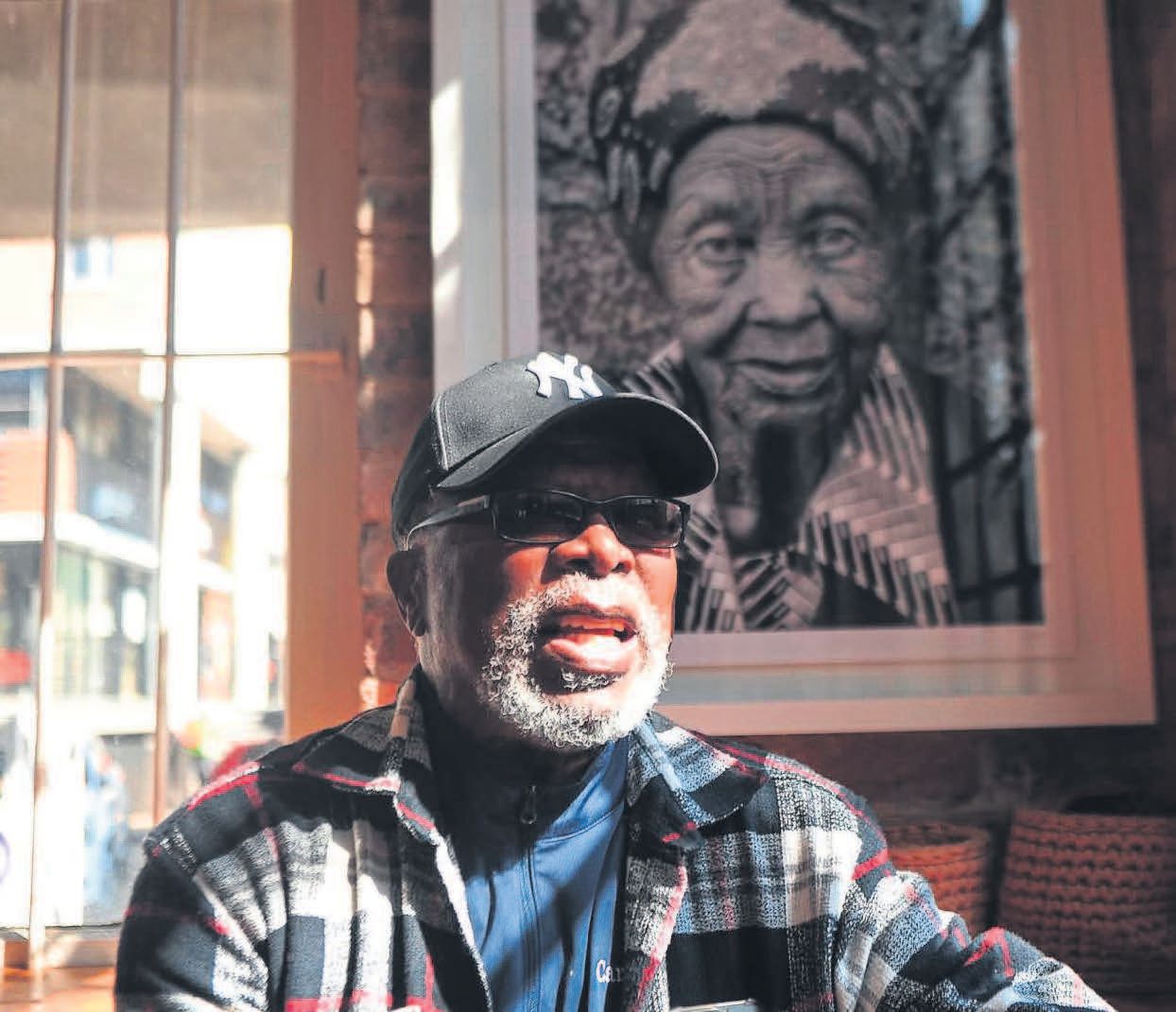
Award-winning thespian and cultural activist John Kani, while dissecting the artist-media relationship ahead of City Press’s final print edition, reminisced about the days when theatre practitioners could not wait to peruse the reviews of art critics in newspapers.
Kani spoke of a time when art supplements such as The Star Tonight would evaluate and critique the works of artists across various spheres of creativity.
Kani referred to City Press and Cape Argus as being of a
reputable calibre and said artists aspired to see their names in these publications’ arts sections.
He used adjectives such as “critical” and “necessary” when describing the relationship artists have with the media, saying this fraternity was instrumental in documenting his achievements as well as the contributions to arts and culture globally.
Kani also emphasised the importance of travel publications found in planes that informed visitors where to find art galleries, theatres and concerts across the world.
He added that this was more important than informing tourists about the locations of taverns.
The 2019 premiere of Kunene and the King at the Swan Theatre in Stanford in the UK was attended by art critic and author Michael Billington, who gave the play a five-star review in The Guardian newspaper.
Kani recalled: “Our main complaint about The Star Tonight was that it had a lot of Tom Jones and Beyoncé and focused very little on the work of South African artists.
“But it did have a theatre directory where you could see what was on at the State Theatre, The Market and such. But nowadays, when I perform a play anywhere in this country, I don’t know where to find the reviews.
“Some people check on Artslink [the arts, culture and entertainment website], some people check on comments made by others on their social media pages where they share their experiences of the play or the concert, but it’s just not the same.”
Kani described the relationship between the media and the arts as having been in limbo since the advent of social media. Lamenting the extinction of art critics in South Africa, Kani shared that the requirement for foreign creatives wanting to penetrate the international market was a compilation of the play’s media reviews from its country of origin.
“The awards system in South Africa doesn’t necessarily have much to do with boosting the quality of the work.
What really cements the deal is quoting a reputable publication to say, this is what City Press said of the play, because those reviews will answer the question of whether the play was well received.
This is what gives the international arts community confidence in your work,” he added.
Welcoming City Press and the media in general’s transition to digital, Kani urged publications that do not yet have this offering to create a dedicated link on their online platforms to strictly cater to patrons of the arts.
He highlighted the plight of artists who hunger for art critics to seal the void left by the likes of Basil “Doc” Bikitsha, Barry Ronge and Sandile Memela.
He said artists depended on those reviews to drum up understanding and love for the arts.
“If Sandile Memela [a former arts editor at City Press Press] gave your play a good review, the ticket sale would improve. My career was built in conjunction and in collaboration with the art critics.
“Everything they said in their reviews helped me crack London, New York, Los Angeles and the world. I knew I had to work very hard and earn that five-star rating,” said Kani.
His experience on Broadway in the US taught him that great reviews alone could increase advance bookings by almost 70%. The disconnection with the industry at home, said Kani, was rooted in the misfortune of award ceremonies taking place up to a year after a play was staged.
This was not the case in other parts of the world where media reports on plays and films winning awards happened while people were still able to watch the productions.
City Press caught up with Kani while he was immersed in press junkets for Mufasa: The Lion King, which premiered across the world on 20 December.
He remembered being interviewed by 32 journalists from Hollywood alone during the US promotion. However, only 22 journalists from all over Africa interviewed him during the opening in Johannesburg.
Among the most important stories journalists reported was an attack by the apartheid police. Kani sustained 11 stab wounds and lost an eye in the process.
The godfather of protest theatre travelled to Zambia the very next day for a film shoot. An accident scene had to be created to account for his injuries.
Thabo Mbeki, Alfred Nzo, Thozamile Botha and other esteemed South Africans read media reports about Kani’s attempted assassination and collectively flew to Zambia to wish their comrade a speedy recovery.
He believes digital newspapers and social media are incredible technological advancements with the potential to elevate the relationship between artists and the media.
Because of its fast-paced nature, Kani sees social media as a tool the media can use for quick dissemination of information to the public.
However, he also described it as dangerous because of its ability to spread fake news.
One way Kani protects his sanctuary is his decision, made very early in his career, never to host interviews at his home.
“By the time the noise of social media hit, I had already drawn the line to say this is my special space where I am umyeni kaMandi [I am Mandi’s husband] and uTata uKani [father] to my children and grandchildren.
“You can’t participate in these crazy platforms and expect that people won’t investigate or even make up [stories]. It is the most frightening thing for me, [sharing] things about your life so that they can get 10 000 views.”
He lamented social media being the undoing of many young creatives who saw it as a “get famous quick tool”, only to be swallowed by the noise and lose track of their purpose in the industry.
“And now you also get producers and directors employing talentless influencers just because they have a million followers. Meanwhile, they have no clue about how to carry themselves on stage or on set.They say they can remember their lines, but teachers and preachers also remember words. If these influencers had taken just one lesson about the industry, they’d know that there’s more to it than memorising lines,” he declared.
When asked to share his greatest career highlights, Kani said the preconceived idea was usually that he would say winning the Tony Award on Broadway, because of the weight it carried in the industry and with customs regulations across the world.
Some journalists expected reference to his multiple lifetime achievement awards, the Order of the Ikhamanga, the Order of the British Empire or the Pragnell Shakespeare award.
However, the thespian revealed his father’s words to his friends in 1985, two decades after Kani’s first play: “This is my son, John Kani. He is an actor.”
That was his most memorable achievement, he said. That recognition, coming three months before his death, was his father’s way of saying he was no longer embarrassed about what his son did for a living.
However, his father’s concerns had been legitimate, given how Kani had been detained and questioned about his plays, in addition to the attempt on his life.
Kani thanked City Press for representing South African arts and culture with dignity, and inspiring young people to want to take the industry to greater heights.
FRONT ROW SPORTS COVERAGE
Since its inception in 1982, this newspaper has broughtreaders up to speed with captivating sports stories.
PULE MOKHINE
The glorious journey of City Press can be traced many years back through inspiring coverage of some of the most memorable sporting moments in and out of the arena.
It is imperative to state that this newspaper was there among the best in the front row, with inspiring reportage, as big sporting milestones unfolded before our own eyes.
Since its inception in 1982, City Press has made its presence felt to its faithful readers in every corner of the country, with the captivating publication of sports stories.
Soccer and boxing are undoubtedly the country’s mainstay and still continue to attract a huge following.
Over the years, the two codes were like religion, where everybody – young and old – was forced to follow with a great deal of interest.
For its part, City Press has always been at the forefront by bringing readers up to speed with what they want to keep abreast of, including behind-the-scenes occurrences.
WE WERE THERE WHEN...
City Press was in the front seat with its reportage when the National Soccer League (NSL) was formed in 1985, following the ousting and break-away from the then National Professional Soccer League (NPSL) of el-supremo George Thabe.
The club owners, led by Kaizer Chiefs boss Kaizer Motaung, among prominent figures, revolted against Thabe – who had a dual stranglehold of power on the NPSL and the SA National Football Association back then.
Cyril Kobus, who was the league’s general manager at the time, and public relations officer Abdul Bhamjee, were influential in the game and resumed their roles in later years.
Both officials fell foul of the law for mismanagement and corruption. Their shenanigans were captured widely by this newspaper – much to the pleasure of the readers.
On another front, the publication was also a cut above the rest by reporting about the feud between two warring Orlando Pirates camps back then.
One of the key moments saw City Press being among those at the front of the pack that reported on and captured a picture of then-rival Pirates boss China “Dibaba” Hlongwane with blood all over his body.
That happened after the self-proclaimed Bucs strongman was stabbed several times by three knife-wielding Pirates fans, when he tried to lead another faction of the Bucs side on to the pitch at Ellis Park before a game against Jomo Cosmos.
This newspaper also set the pace by covering Bhamjee’s escapades as the undisputed “Mr Soccer” in the 1980s.
During his era as PRO, he managed to sell an idea to then First National Bank’s managing director, Chris Ball, and the FNB Stadium in Crown Mines near Soweto was built.
It was also due to Bhamjee’s stroke of genius that millions of rands in sponsorship were raised for the league.
The story was widely captured by the paper as among its best exclusives back then.
PULLING NO PUNCHES
On the boxing front, City Press also occupied the front berth by bringing a blow-by-blow account of the happenings in and outside the square jungle.
The newspaper occupied the ringside seat when Gerrie Coetzee became the first African boxer in history to fight for and win a world heavyweight title, having held the World Boxing Association (WBA) title from 1983 to 1984.
His knockout victory over American Michael Dokes in Ohio, US, made him South Africa’s first world heavyweight kingpin. That moment still reverberates in the pugilistic circles. We were there to give readers action.
Flyweight pugilist Peter “Terror” Mathebula became the first black South African fighter to win a world title, following his victory over South Korean Tae-Shik Kim to lift the WBA flyweight belt in Los Angeles, US, in 1980.
Mathebula, who lost his belt to Santos Laciar in a first defence a year later, was described as a trailblazer for uniting black and white fans during the apartheid era.
His bouts were widely covered by City Press before he retired.
He died in 2020.
Jacob “Baby Jake” Matlala’s distinguished career enjoyed massive publicity for putting his township, Soweto, on the map.
He won four world crowns during a glittering pugilistic run.
Matlala died in 2013.
Who can ever forget Dingaan “The Rose of Soweto” Thobela?
He featured prominently in City Press for winning the World Boxing Organisation and WBA lightweight titles.
His star shone even brighter when he added the elusive World Boxing Council (WBC) supermiddleweight championship to his list of notable achievements in 2000.
This came about after dethroning Englishman Glenn Catley by a 12th-round knockout in England.
The WBC win made the world sit up and take note of Thobela’s ring prowess in winning global crown titles of three sanctioning bodies.
But the WBC conquest was the cherry on top of the cake as no local boxer had ever lifted the belt of such a prestigious sanctioning body in that weight class.
Thobela’s boxing career enjoyed massive publicity, and it followed the track of Thulani “Sugarboy” Malinga, who tasted WBC championship conquest twice, albeit as a super middleweight boxer.
The visit to South Africa in 1993 of the world’s greatest boxer of all time, Muhammad Ali was among the moments that was widely covered.
Ali was here at the invitation of former president Nelson Mandela. But his trip was overshadowed by the assassination of SACP leader Chris Hani, who was shot and killed by Polish immigrant Janusz Waluś at his (Hani’s) driveway in Dawn Park, Boksburg, in Ekurhuleni.
But Ali’s short visit here was widely covered by City Press.
All in all, City Press has had a finger on the pulse of its sports coverage.
- Mokhine is a former City Press deputy sports editor. He specialised in soccer, boxing and golf.
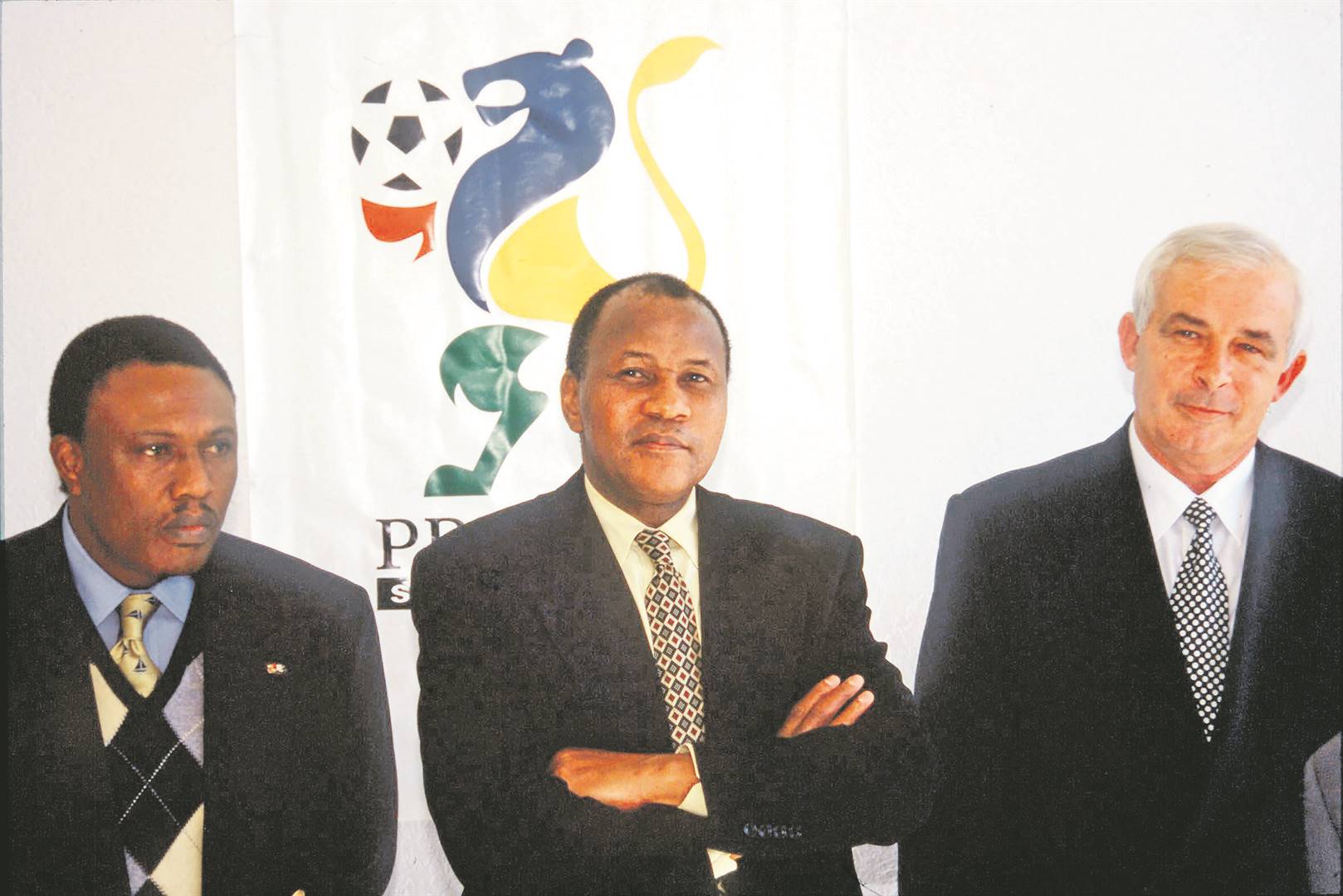
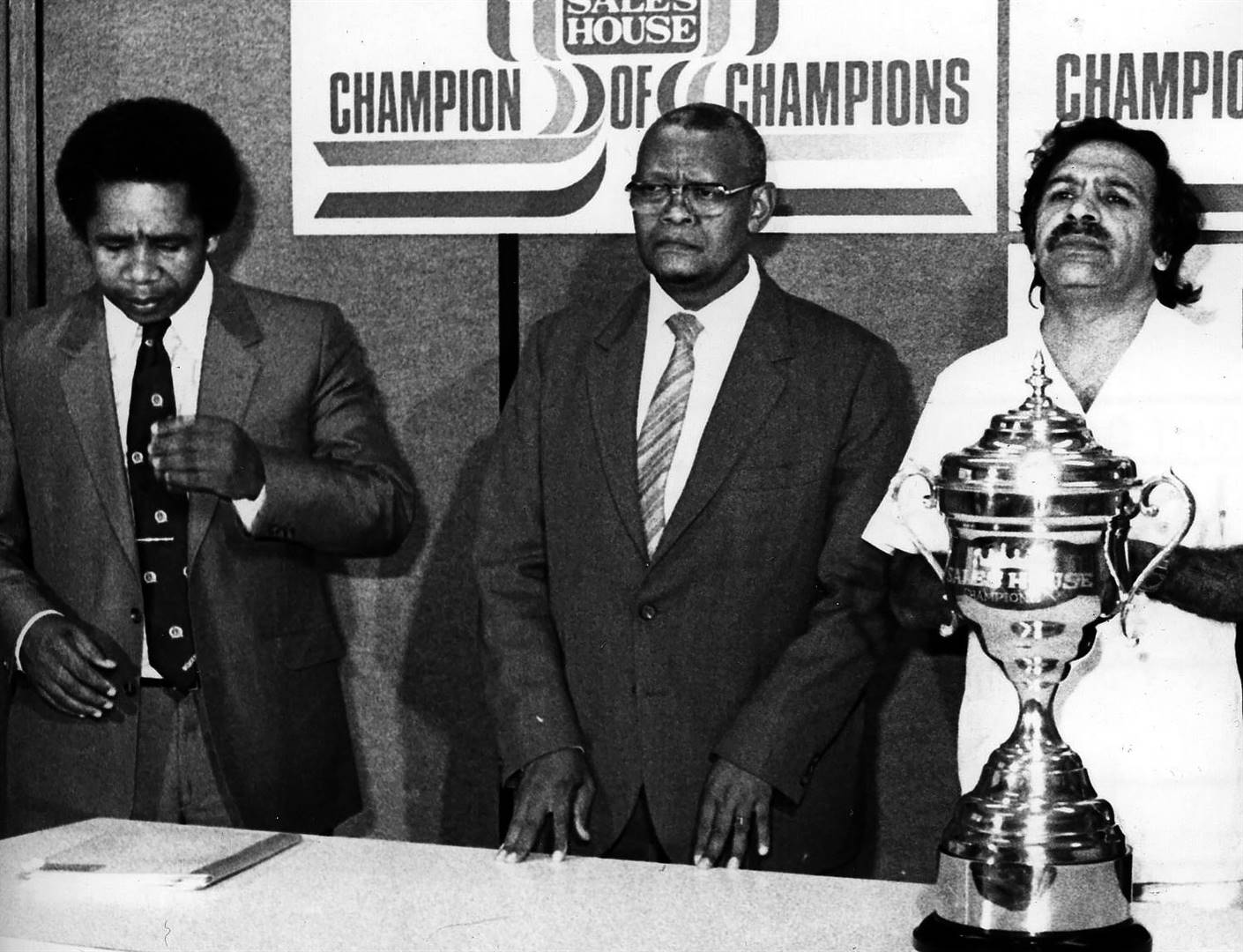
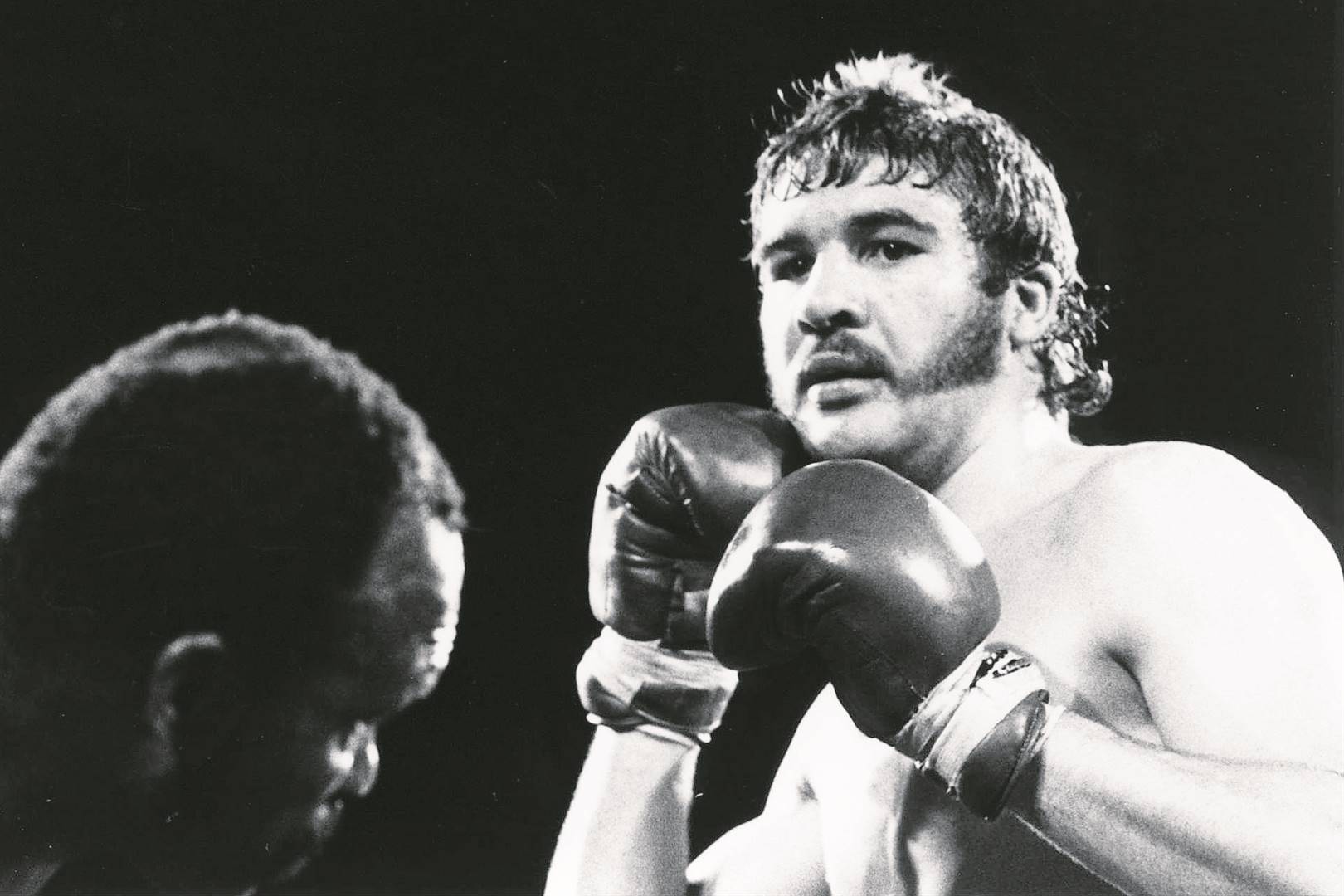
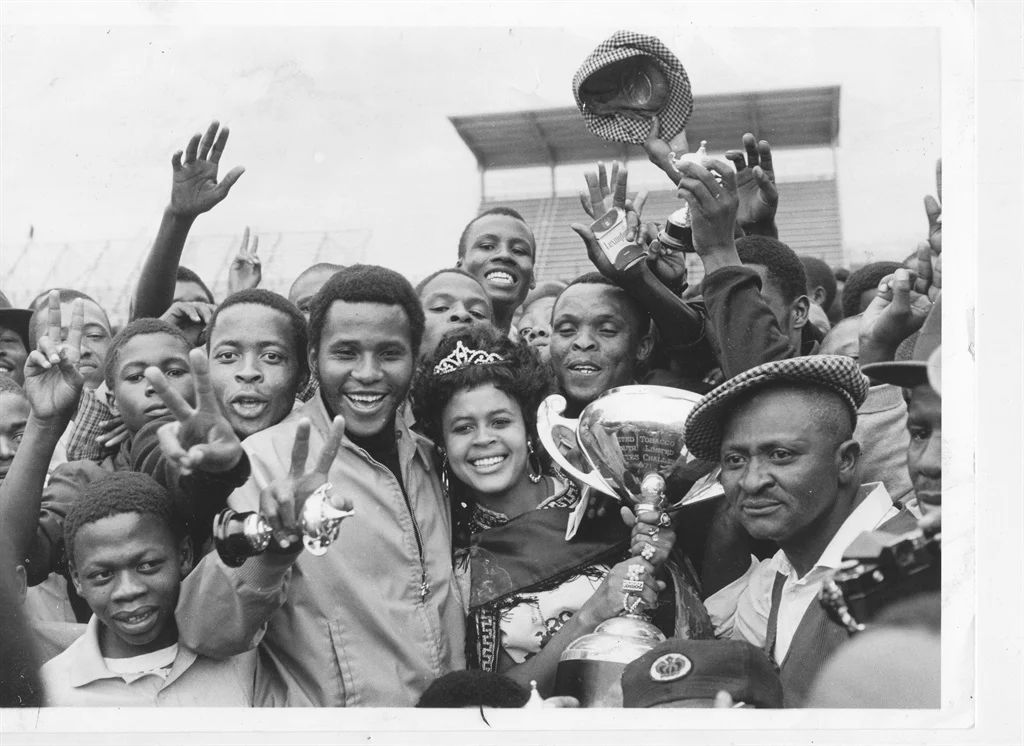
KHULU SIBIYA (1988–2000)
It’s 42 years and 10 months since the late Jim Bailey launched City Press to the surprise of many people, including the media moguls and seasoned journalists in South Africa.
The consternation and bafflement of this move came mainly from white media houses, which, not surprisingly, had for centuries enjoyed the monopoly of controlling the flow of news and information in this country.
Black people’s main source of information and entertainment had been curtailed and nipped in the bud by the closure and banning of The World newspaper five years earlier in 1977.
The English people had been catered for with a wide variety of choices and so had the Afrikaners, who also had the coloured community as their readers.
It was, therefore, natural for City Press to be born to fill this void created by the banning of The World newspaper.
The survival of City Press as a viable newspaper depended entirely on its credibility and acceptance by the black community. It had to be relevant and play the role of being the mouthpiece of the oppressed majority.
That it stood the test of time cannot be in doubt, even against all the odds, which included financial constraints and distribution infrastructure in the townships versus those in the white areas.
There’s no doubt in my mind that, had City Press not played the active role that it did in our liberation struggle, this newspaper would have died a natural death.
I am glad that every single former and current editor played an active role in keeping this publication alive until today.
This brings me to a new era. We can be sentimental and yearn for the past life of print media, but it cannot come back; it’s gone.
We now live in the era of AI. The days of paper and print cannot come back.
Digital is the future.
However, you cannot underscore how easily misinformation can get out of control in this digital age.
We are already experiencing social media’s capacity to spread unverified claims and destroy people’s reputations.
Not only that, these uncontrolled loose cannons remind me of the oft-repeated story of a man who walked into a full movie house and screamed fire.
The saving grace here is that City Press built a solid reputation as a reliable, believable and trustworthy newspaper.
I cannot see this being thrown out of the window for the sake of being relevant to the times.
I cannot see this new, digital City Press forsake its reputation because of social media hysteria.
The people will no longer wait for Sunday for their news; this to me is the new world order.
Good luck to the
staff and the readers at large.
- Sibiya is SuperSport FC chairperson
LEN KALANE
LEN KALANE
LEN KALANE (1996–1999)
We were there on day one of City Press and it was in the late 1990s we first got wind that the digital world would someday take over our lives.
When and how it would come about we didn’t know. It has now come the way it has and we know, as the curtain falls on the outmoded print City Press.
The mind shoots back to the annual Naspers leadership strategic conference, held over three days, where the digital savvy Koos Bekker, then CEO, first sounded the bell about the imminent technology and the need to prepare for it.
Alright, we already had computers on our desks at the time, which had dislodged the typewriter. We had the first generation cellphone. Again, no problem as these were harmless but useful analogue cellular networks confined to voice telephony.
The internet followed and we embraced it as it helped with computer-assisted journalism.
Then the smartphone, the little monster that in one fell swoop gobbled up everything into a single indispensable gadget, almost displacing the traditional camera, linear TV, the calculator, radio and everything else – even the computer itself – all at once.
As we speak, the darn handset is always within arm’s length along with the associated gadgets and devices. It brings to us a full spectrum of digital capabilities and dynamism, spawning a whole new industry we call “social media”.
Content consumption habits and patterns have changed. The world of newspaper selling by the corner café and street vendor has wilted.
Technology brings digital content straight to your device, a click away without even breaking a sweat.
The result has been as remarkable as it has been catastrophic. The mighty tech has once more proven to be quite a formidable challenge, the digital apocalypse devouring everything in its path.
We love it though. It talks to specific audiences based on factors such as age, location, interest and much more in very cost-effective ways.
It encourages the creation of global communities in ways
that were never possible, with no prohibitive print and distribution costs.
Yet this is only the beginning of the evolution of the revolution. AI is still in full bloom, used in many forms and many articulations.
Bekker’s predecessor Ton Vosloo, when asked whether the end was in sight for printed newspapers, had said: “No, the
printed media has already adapted by presenting content on various platforms.
“It is a transitional period and Naspers is strong enough to carry printed newspapers.”
True. Naspers and its Media24 division did just that for the longest time.
As old hacks, we will miss the works – the smell and soft touch of the freshly issued newsprint that came with the era of the humming, giant printing press, churning reels of newsprint overnight well into the morning, feeding the waiting, insatiable giant distribution trucks. We miss the whiff of the faint smell the machines produced; the dripping ink, once dried up and solid, the product in the hands of every reader, whose content accelerated human progress.
For a history-rich 42 years, the printed City Press shone all the way, showing the way all the way. Digital is the new exciting chapter we should delightfully embrace.
- Kalane is author of The Chapter We Wrote: The City Press Story, and recipient of 2019 Media24 Legends Award. He is founder of PiE Digital.
Mathatha Tsedu. Photo: Dudu Zitha
Mathatha Tsedu. Photo: Dudu Zitha
MATHATHA TSEDU (2004–2007)
The old adage “The Old World is dying and the New World struggles to be born; now is the Time of Monsters” was probably coined for this moment.
This newspaper, which has been part of our weekend reading in paper format, is dying. In its place, the digital format that can stand as a truly profitable business on its own, struggles to be born.
We are in the interregnum, the fading familiar and the uncertainty of the new dawn, prowled by firewall monsters that tease you with a taste of what is, but oh so unreachable unless you subscribe.
It is a far cry from the walk to the shop to buy a copy and the old Methuselahs among us struggle to get the hang of the news on the phone.
We still hanker for the read on the stoep, with sections of the newspaper strewn on the floor.
There was fun in producing the print edition: very strict deadlines so that printing could start on time and not miss the trucks heading to the Karoo; the thrill of just making that deadline at nearly midnight for the final edition.
Then there was the decision by Fifa, the right to host the 2010 Fifa World Cup. It came on a Saturday, a kind of made-for-City Press timing. We produced a special
edition that Saturday, complete with adverts eulogising the decision.
But we had a second option ready too, in case Fifa president Sepp Blatter had pulled out of the envelope a different country, as he had done before.
And that second option also had adverts – mourning the
possible decision. An hour after Blatter opened that envelope and sent South Africans into a frenzy of jubilation, we had copies in Thembisa, Soweto, Atteridgeville, downtown Jozi and the Vaal.
The “real” City Press the following day featured people reading the special edition.
I do not doubt that many people kept that as a reminder of the time. Just as they would have done with the copy of
Nelson Mandela walking out of prison in February 1990.
And that is what we are losing here today, the ability to archive easily retrievable browning copies to boast or refer.
And yet, the new, as it struggles to be born, holds immense possibilities.
Easy access, anytime, anywhere by various means. For the journalists and editors, there is no deadline every minute, no waiting for Sunday.
For the reading public, instead, you get breaking stories and analysis on the go, from the same trusted source.
Goodbye printed City Press, hello digital only City Press.
May the prowling monsters of the new dawn be slain.
- Tsedu is a farmer in Limpopo
KHATHU MAMAILA (2007–2009)
As a newspaper, City Press has come a long way.
I remember as a cub reporter in 1992 when I would join Bra Bab, Lucas Ntsoelengoe, the elderly driver who would never forget to remind you that he was the uncle of soccer maestro Ace Ntsoelengoe, when he delivered zinc plates to the presser so that newspaper pages could be printed.
Then the digital era, whereby all processes were digitised, a process that allowed more relaxed deadlines and colour on every page of the newspaper, arrived.
But City Press remained the leading newspaper and the conscience of the nation.
Now that City Press is becoming a purely digital publication without a print edition, it may be difficult for some of us who are addicted to the smell of ink to adjust to the new format.
While the bunny-huggers may be celebrating that the transformation of City Press to an online publication will mean the cutting down of fewer trees, the legions of loyal readers should take solace in the fact that their favourite publication will continue with its historic mission and mandate of being the voice of the voiceless.
It will continue holding power to account and breathing life to our Constitution that is based on principles of equality, justice and freedom for all.
I am honoured and will treasure the rare opportunity of having served the nation as editor of this great publication that has positioned itself as one of the key pillars of quality journalism in our country.
I am extremely proud of what the publication has achieved throughout its existence.
Salute!
- Mamaila is a communications expert
FERIAL HAFFAJEE (2009–2016)
There is nothing quite like it. The finished pages of City Press were pinned to a wall as the team walked by to make sure we had it just right: a heady mix of politics, sports and black opinion.
That was the Saturday night in the City Press newsroom – doing the final walk to check the pages with the team. Did we get it right? Were there errors we had to fix? Had we been fun, feisty and fair?
Editing City Press was my heart-place.
To helm the institution of Percy Qoboza, Tsedu and the other great editors who had shaped it was an honour that shaped me.
To remember how we walked the wall with the people who made City Press sparks joyous memories. I remember with love the late great sports editor S’busiso Mseleku; and the Voices editor, my deputy and the late son of Matsulu, Dumisane Lubisi.
The transition to online was coming fast and we established City Press online as a growing product. It should morph into a weekend online read like the smashingly successful FT Weekend.
Our leaders at Media24 had other ideas, so I moved away to learn new skills, as it was evident that print’s time was dated.
To watch those circulation numbers drop so quickly was a headache for the editors and a pocket-ache for the owners.
I had a front seat to the media revolution at City Press, so it’s no surprise but still a sad moment that this title we love is printing its final edition today.
Most of us now read news on our phones, with a few on other devices: print will not die, but it is increasingly a niche product, just like vinyl.
I’ve remained a loyal reader even though I haven’t bought a copy for years.
Here’s how. You get a News24 subscription (it’s only R75 a month), scroll to publications and find City Press; the
magic is all there.
The grit. The culture that City Press has been famed for. The touch of mhleli-in-chief, Mondli Makhanya, in his signature column. It’s all there.
City Press in a new medium on a new platform: I hope the owners and editors add podcasts and documentaries, give it the budget to continue to bring us the Voices of the nation in the opinion section and take this wonderful heart-brand into the new places and spaces where great journalism continues.
Long live, City Press, long live!
- Haffajee is associate editor at Daily Maverick

